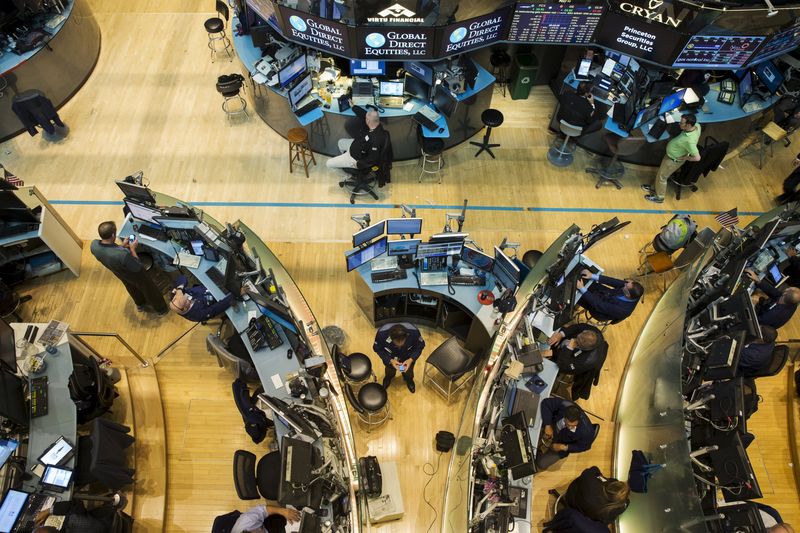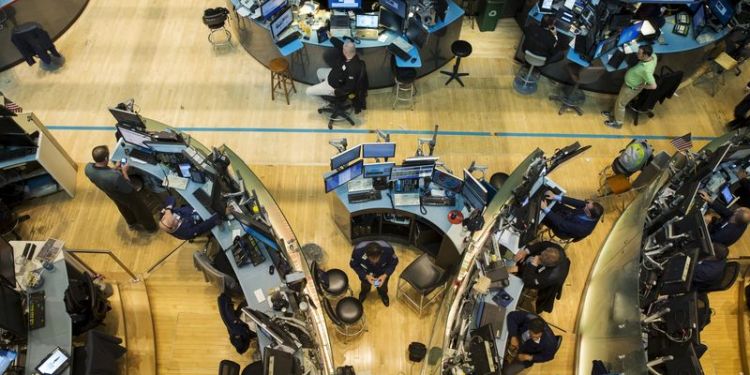
© Reuters.
By Geoffrey Smith
Investing.com — The House of Representatives is set to approve the Democrats’ ‘Build Back Better’ spending bill. A key Federal Reserve policymaker turns more hawkish, putting the spotlight on two more pivotal members’ speeches due later. Europe starts to lock down again as Covid-19 cases spiral out of control in Germany and central Europe, sending oil prices to seven-week lows. Here’s what you need to know in financial markets on Friday, 19th November.
1. Spending bill set for House vote
The House of Representatives is set to vote Friday on the Democrats’ Build Back Better bill, a trimmed-down but still extensive package of measures intended to expand the welfare state and accelerate the energy transition.
The bill, which includes provisions for universal prekindergarten places, caps on childcare costs for poorer and middle-income families, the lowering of prescription drug prices and the expansion of tax credits for cutting carbon emissions, comes with a sticker price of just under $2 trillion over 10 years.
While much of the spending will be covered by higher taxes on corporations and wealthier individuals, the Congressional Budget Office has judged that it will nonetheless add to the budget deficit over the period.
2. Europe locks down again
Austria became the first European country to announce a full lockdown this winter, in an effort to stem a spiralling infection rate. The Alpine country had earlier this week imposed restrictions only on unvaccinated people, but the rise in infections continued even after that. It also became the first European country to impose a nationwide vaccine mandate, starting in February.
More worryingly for the European economy, Germany’s outgoing health minister Jens Spahn said that the continent’s biggest economy couldn’t rule out doing the same. With infection rates some 30% over the previous record high, federal and state governments approved a new set of measures on Thursday that will also target the unvaccinated.
The news triggered a sharp but brief sell-off in European stocks. The euro also dipped back below $1.13 to test the 16-month low it set earlier in the week, after ECB President Christine Lagarde again dismissed the need to react to a spike in inflation. German producer price inflation hit 18.4% in October, due largely to soaring gas and electricity prices.
3. Stocks set to open mixed
U.S. stock markets are set to open mixed later, with cyclicals underperforming in response to the lockdown news out of Europe.
Nasdaq 100 futures, however, hit a new record high overnight, rising 0.4% to 16,546 points. Dow futures were down 140 points, or 0.4%, while S&P 500 futures were down a little over 0.1%.
Stocks likely to be in focus later include Apple (NASDAQ:AAPL), after a Bloomberg report on Thursday claimed that it was aiming to build a fully-autonomous car by 2025, and Activision Blizzard (NASDAQ:ATVI), where a petition calling for veteran CEO Bobby Kotick to step down has now been signed by over 1,000 employees.
Airline and cruise stocks are likely to come under pressure from the news out of Europe. Foot Locker (NYSE:FL) reports quarterly earnings.
4. Fed’s Clarida, Waller due to speak after Williams turns hawkish
How quickly is the Federal Reserve turning hawkish? The market will know more later after vice-chair Richard Clarida and governor Christopher Waller finish speaking.
Clarida in particular is at the dovish end of the opinion spectrum at the Fed, so any sign of increased concern at the price pressures increasingly evident in the economy may be taken as a sign that the Fed may speed up the pace at which it phases out its asset purchases.
Regional Fed Presidents James Bullard and Raphael Bostic have repeated familiar calls for interest rate hikes in 2022 this week, but a more interesting development came on Thursday when one of the Fed’s key swing members, New York Fed President John Williams, warned that price increases had become more broad-based and that the Fed doesn’t want to see long-term inflation expectations rise much further.
5. Oil struggles after lockdown scare
Oil prices fell to a seven-week low as news of the return of demand-killing lockdown measures exacerbated sentiment already hurt by recent reports of plans for a coordinated release of strategic reserves by the governments of both China and the U.S.
By 6:30 AM ET, U.S. crude futures were down 2.6% at $76.40 a barrel, while Brent fell below $80 for the first time since early October, losing 2.7% to $79.06 a barrel.
Baker Hughes’ rig count later will give indications of whether expectations for rising U.S. output in the next couple of months are well founded. The CFTC’s net positioning data is also due.
Source: Investing.com





























